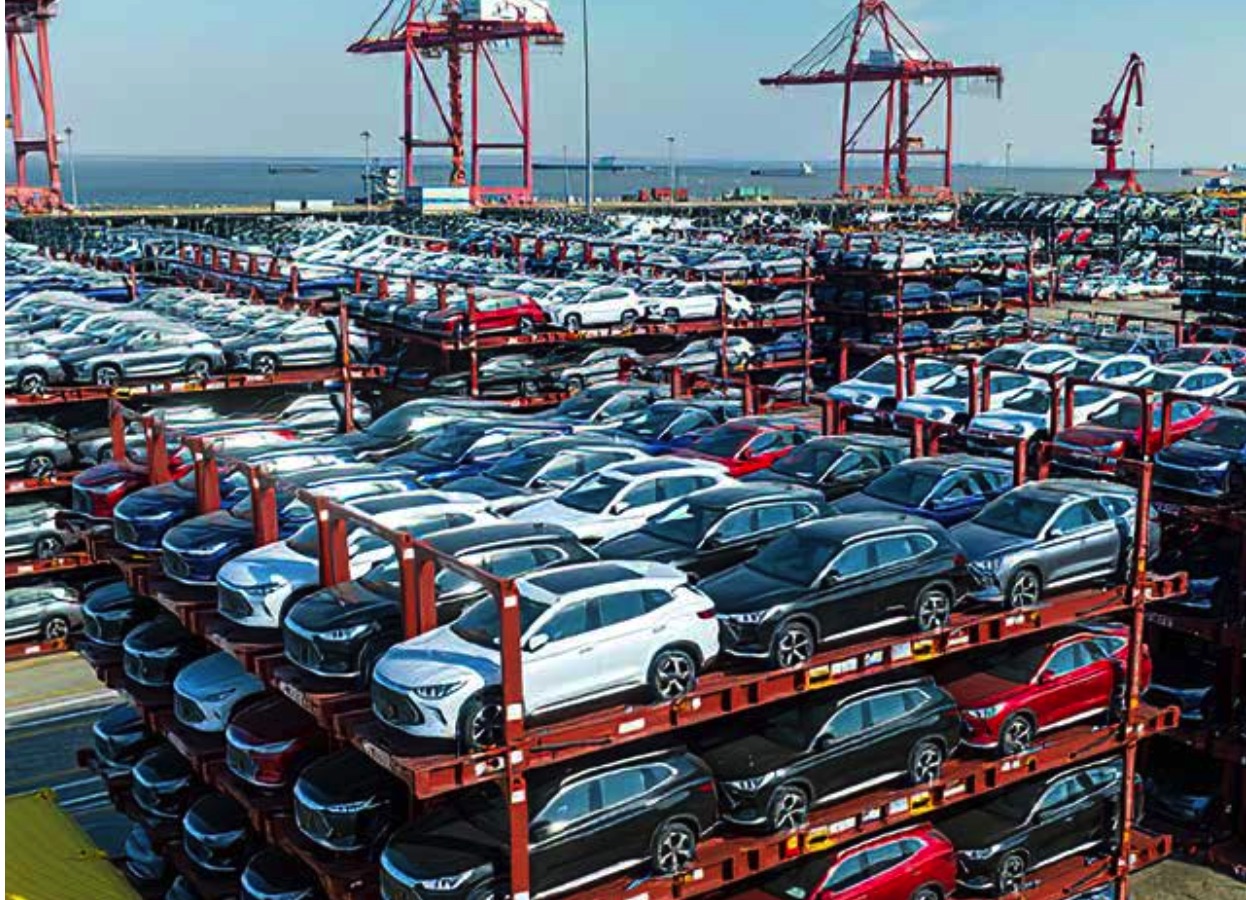
In a sweeping move aimed at safeguarding national security, the U.S. has proposed a ban on the use of Chinese and Russian technology in the manufacturing of vehicles, including cars, trucks, and buses.
The decision, announced by the U.S. Department of Commerce on Sept. 23, is driven by mounting concerns over foreign-made software. When used in connected and autonomous vehicles, this technology could be manipulated to compromise safety on American roads and even gain access to sensitive data on U.S. citizens. The risks are simply “too great to ignore,” said Commerce Secretary Gina Raimondo.
“Cars today have cameras, microphones, GPS tracking, and other technologies connected to the internet,” said Raimondo, as she highlighted the potential for these features to be exploited. “In extreme situations, a foreign adversary could shut down or take control of all their vehicles operating in the United States, all at the same time, causing crashes or blocking roads,” she added.
RELATED: EU Follows US Lead by Slapping Tariffs on Chinese EVs, Sparking Retaliation Threats
Safeguarding US manufacturing
The proposed regulation will affect the use of Chinese and Russian software starting with the 2027 model year, with hardware restrictions following three years later. The timeline is designed to give auto manufacturers sufficient time to adapt their supply chains and remove any dependency on foreign technology, said Raimondo. However, she also explained that the shift is no small feat, as the automotive industry is notorious for its complex, globalized supply chains.
Success
You are now signed up for our newsletter
Success
Check your email to complete sign up
John Bozzella, president of the Alliance for Automotive Innovation, acknowledged the challenges the ban presents. “You can’t just flip a switch and change the world’s most complex supply chain overnight,” he said, noting that while there is currently “very little technology, hardware or software in today’s connected vehicle supply chain that enters the US from China,” some firms will undoubtedly need to secure new suppliers to comply with the proposed rule.
Bozzella praised the lead time provided by the rule but cautioned that “it may be too short for others.” He also emphasized that the transition will require significant adjustments across the automotive industry, particularly for companies with deep ties to existing suppliers.
RELATED: Japan’s Daiwa House Planning US Factory for Prefab Homes
Cybersecurity risks
The issue at hand revolved around the vulnerability of connected vehicles, which rely on technology to perform everything from GPS navigation to autonomous driving, said Raimondo. A U.S. government probe, launched in February, found significant cyber risks posed by the integration of foreign software and hardware in vehicles. The risks included potential hacking, data theft, and even remote control of vehicles by malicious actors.
White House National Security Adviser Jake Sullivan underscored the gravity of these risks, warning that if foreign adversaries gained access to millions of connected vehicles, “the risk of disruption and sabotage increases dramatically.” Sullivan also pointed out that the US has already witnessed foreign actors embedding malware in critical infrastructure, making the threat very real.
RELATED: Jake Sullivan Meets With Xi in Rare Meeting as Washington Navigates Sino-US Tensions
In response, China has criticized the U.S.’ stance, accusing Washington of using national security as a pretext to block Chinese firms from participating in the US auto market. “China opposes the US’s broadening of the concept of national security and the discriminatory actions taken against Chinese companies and products.” said Lin Jian, a spokesman for China’s Foreign Ministry.
Lin also called on the U.S. to provide a fair and transparent business environment for Chinese enterprises, but U.S. officials maintain that the security of U.S. citizens and critical infrastructure comes first.
Supply chain shifts
The proposed ban is part of a broader U.S. strategy to secure critical technology supply chains, particularly in light of China’s dominance in sectors like electric vehicles and artificial intelligence (AI) software, noted Raimondo. While Chinese automakers have made significant inroads in Europe, the U.S. is taking steps to limit their presence within the American market.
But the strategy is not only limited to automobiles; the White House has also imposed tariffs on electric vehicles and batteries and banned Chinese-made cargo cranes over similar cybersecurity concerns, noted Raimondo.
RELATED: Quality, Safety Concerns of Chinese-made EVs Come to the Fore
While the immediate focus is on connected vehicles, the implications of the ban extend much further. The regulation is expected to also reshape supply chains in the auto industry, with manufacturers needing to find alternative sources for key technologies. “This is not about trade or economic advantage,” said Raimondo. “This is a strictly national security action.” The emphasis should be on “protecting Americans from potential threats” she added.
Meanwhile, the Biden administration plans to publish an economic analysis detailing the anticipated costs of compliance for both automakers and consumers. A public comment period will follow, allowing industry leaders and other stakeholders to weigh in on the proposed rule before it is finalized and put into action.
Sino-US tech battle
China, which has invested heavily in the connected car market, now faces increasing restrictions from the U.S. as part of a broader effort to decouple critical industries from foreign influence. The U.S. has previously imposed sanctions on Russian tech firms like Kaspersky Lab, citing similar national security concerns.
The automotive ban comes at a crucial time for the U.S., as the Biden administration ramps up initiatives to support American autoworkers. New programs aimed at supporting autoworkers in Michigan, a key battleground state in the upcoming election, were also unveiled alongside the proposed tech ban.
Vice President Kamala Harris, who is running for president on the Democratic ticket in November, has played a key role in the administration’s outreach to unions while emphasizing the importance of rebuilding the domestic auto industry. “This investment will help to keep our auto supply chains here in America,” Harris said during a visit to Detroit — a longtime manufacturing stronghold. “[It will] strengthen America’s economy overall and keep those jobs here in Detroit.”
